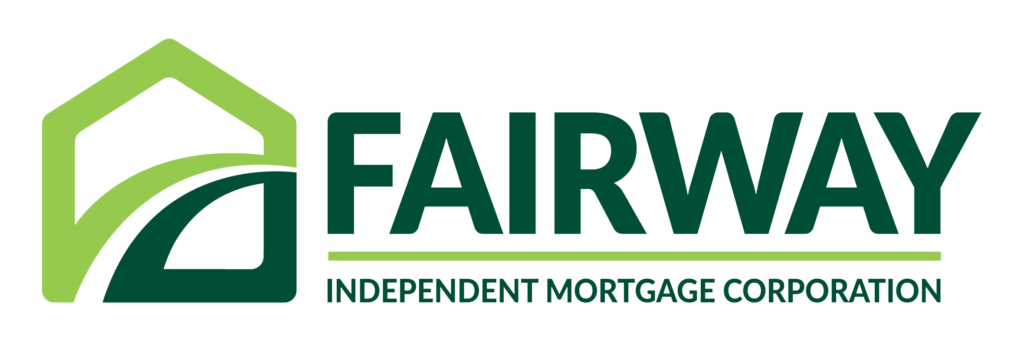Unlocking Potential: Exploring the Top 10 Uses for Reverse Mortgage Loans

A viable method for senior homeowners to bolster their financial security and improve their quality of life in retirement is utilizing their home equity through a reverse mortgage loan.
In this article, we’ll delve into the concept of reverse mortgages and examine common ways older-adult homeowners are leveraging this powerful financial solution.
In this article, we’ll cover…
- What Is a Reverse Mortgage
- Top Reasons Seniors Use a Reverse Mortgage
- Refinance a Traditional Mortgage
- Pay for Home Renovations and Repairs
- Fund Long-Term Care / Cover Medical Expenses
- Support Family Members / Gift With a Warm Hand
- Divide Assets During a Divorce Settlement*
- Consolidate Debt
- Buffer Against Down Markets*
- Build an Emergency Fund
- Enhance Quality of Life
- Purchase a New Home
What Is a Reverse Mortgage?
A reverse mortgage is a home-secured loan enabling homeowners 62 and over to convert a portion of their home equity into usable cash. Repayment of the loan balance can be deferred into the distant future — typically until the last remaining borrower moves out or passes away. While there are no required monthly principal or interest mortgage payments, the borrower must live in the home and pay critical property charges, like taxes and insurance.
While various types of reverse mortgage loans exist, the Federal Housing Administration (FHA)-insured Home Equity Conversion Mortgage (HECM) loan reigns as the predominant choice among reverse mortgage borrowers. It’s the only reverse mortgage insured by the federal government and can only be offered by FHA-approved lenders like Fairway.
For clarity, this article will exclusively focus on the HECM reverse mortgage option. Fairway is available to assist if you need detailed information on any other type of reverse mortgage loan.
Top 10 Reasons Seniors Use a Reverse Mortgage
Refinance a Traditional Mortgage

According to the Urban Institute, more than 40% of Americans enter retirement while still carrying a traditional mortgage. A HECM is an option for seniors to refinance their mortgage and remove those fixed payments from the retirement budget.
Here’s how it works: You can use HECM loan proceeds at closing to refinance (pay off) your payment-required traditional mortgage into a payment-optional reverse mortgage. With a HECM, you can pay as much or as little toward the loan balance each month as you want for as long as you live in your home. You simply have to maintain the home and pay the property charges, like taxes and insurance. Plus, you can use any remaining HECM loan proceeds as you wish.
Pay for Home Renovations and Repairs
From widening doorways to renovating a bathroom, numerous home modifications can enhance safety and comfort, ensuring you can enjoy your home now and in the future.
It can be difficult for people of retirement age to fund significant home improvements through conventional means. A reverse mortgage can make it easier to fund and afford home improvements you need and want.
Fund Long-Term Care / Cover Medical Expenses

Long-term care expenses and medical costs can accumulate rapidly, posing significant risks to your cash flow, assets and intended legacy. Devising a plan to fund or finance potential long-term care needs during retirement is paramount for safeguarding your health and wealth.
Here are just a few ways HECM loan proceeds can help a borrower fund associated costs:
- Pay for long-term care insurance premiums (before needing care)
- Fund the deposit on a nursing home (e.g., the care is needed for one spouse and the other spouse still lives at home)
- Self-fund professional or informal care for a period of time (e.g., pay for an in-home care nurse while recovering from a fall)
- Cover medical expenses
Support Family Members / Gift With a Warm Hand
Having additional funds in your retirement budget opens up new opportunities for supporting your family and making charitable contributions. For instance, if you tap your home equity via a reverse mortgage, you may be able to help out a grandchild with college tuition without disrupting your retirement plan. This way, you can see the impact of your legacy in your lifetime.
Divide Assets During a Divorce Settlement*
For older adults divorcing, assets have likely been intertwined for decades, adding to the challenge of dividing them. Financial needs are sure to be top of mind, as both parties will need the means to support their individual lifestyles throughout a potentially lengthy retirement period.
A reverse mortgage could be helpful in a gray divorce settlement in several ways.
During divorce, it’s common for one spouse to want to continue living in the home while the other wants to move out with their share of the home equity. The reverse mortgage could allow one ex-spouse to stay in the home, with the reverse mortgage used to pay a necessary portion of the home’s equity to the other ex-spouse. The buyout can happen for the departing spouse without disrupting either retirement plan because of the reverse mortgage’s flexible repayment feature.
Consolidate Debt
Many seniors grapple with high-interest credit card debt, auto loan debt or other financial liabilities they bear during retirement. With a reverse mortgage, you can use the loan proceeds after closing to pay off creditors of your choice.* This can enhance your monthly cash flow for essential needs or desired expenses, as the loan’s flexible repayment feature can reduce your monthly expenses, leaving more money in your pocket.
Buffer Against Down Markets*

A reverse mortgage can be structured as a line of credit, offering access to cash when needed, making it advantageous for long-term financial strategizing.
By drawing from home equity when the market is down rather than selling investments at reduced prices, you can maintain a steady source of cash flow while waiting for your portfolio to potentially recover.* We recommend speaking with a financial advisor about how a reverse mortgage may enhance your retirement plan.
Watch this short clip of a real Fairway customer sharing how he integrated a HECM into a strategic retirement plan.
Build an Emergency Fund
One pressing concern you may have is whether your savings will sustain you through retirement. Numerous uncertainties, like longevity and unexpected financial challenges, can complicate the answer to this question.
Establishing a reverse mortgage line of credit can be an excellent way to build a secure, readily accessible emergency fund for contingencies. A good reason to establish the HECM line of credit sooner rather than later is the unused portion of the line of credit grows in your favor (it grows at the same compounding rate as the loan balance). In other words, you’ll have greater borrowing capacity over time.
A HECM line of credit provides numerous benefits, offering some distinct advantages over a cash-out refinance, Home Equity Line of Credit (HELOC) and Home Equity Loan (HEL), all of which are worth exploring.
Enhance Quality of Life
Retirement is meant to be one of life’s most fulfilling chapters. A reverse mortgage provides financial flexibility that can enhance the quality of your retirement years. For instance, some may use their loan proceeds to travel, purchase a new car or spoil the grandkids. For individuals with a fixed income, a reverse mortgage can truly make a meaningful impact on their day-to-day life.
Purchase a New Home

One of the real estate industry’s lesser-known facts is that individuals 62 and older have alternatives beyond paying all cash or securing a traditional mortgage to purchase a new home. A third option exists: Using a reverse mortgage to buy a new home.
Here’s how it works: You provide the required equity, around 45%-70% of the purchase price,** via a down payment at closing. Once the loan closes, it essentially works the same as if the reverse mortgage was placed on a home you’d owned for decades.
It feels like a cash purchase since you’ll have no required principal or interest mortgage payments, but you’ll be able to keep more of your productive assets out of real estate and free to use as you wish. As with any mortgage, you’ll be required to pay property charges, like taxes and insurance.
Watch this short clip of real Fairway customers sharing how they used a reverse mortgage to buy their dream home.
Let’s Start a Conversation!
These are several common methods older adults use to harness home equity and enrich their retirements, but it’s not an extensive list. If you’d like to find out how a reverse mortgage loan can help the unique needs of yourself, a loved one or someone you advise, connect with Fairway today to learn more.
*This article does not constitute financial or legal advice. Please consult a financial and/or legal advisor regarding your specific situation.
**The required down payment on your new home is determined on a number of factors, including your age (or eligible non-borrowing spouse’s age, if applicable); current interest rates; and the lesser of the home’s appraised value or purchase price.

